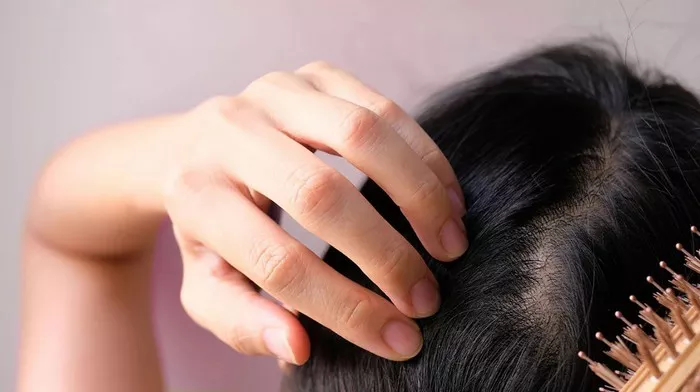Hair loss is a common concern that affects millions of people worldwide. While it is often associated with natural aging, stress, or genetic factors, there are instances where hair loss may serve as an underlying symptom of a more serious health condition, including cancer. In this article, we delve into the relationship between hair loss and cancer, exploring the potential warning signs and highlighting the importance of timely medical evaluation to rule out any serious underlying causes.
Understanding Hair Growth and Shedding
Before delving into the connection between hair loss and cancer, it’s essential to understand the normal hair growth cycle. Hair grows in cycles, comprising anagen (growth phase), catagen (transitional phase), and telogen (resting phase). At any given time, about 90% of the hair on the scalp is in the anagen phase, actively growing, while the remaining 10% are in the telogen phase, eventually falling out to make room for new hair.
The Link Between Hair Loss and Cancer
Hair loss, medically known as alopecia, is a common concern that affects people of all ages and genders. While it is often attributed to factors such as aging, genetics, hormonal changes, and stress, there is a connection between hair loss and cancer that requires attention and understanding.
Chemotherapy-induced Hair Loss:
One of the most widely known connections between cancer and hair loss is the effect of chemotherapy. Chemotherapy drugs target rapidly dividing cells, which includes cancer cells but also affects other rapidly dividing cells, such as those in hair follicles. As a result, many cancer patients undergoing chemotherapy experience significant hair loss. This type of hair loss is usually temporary, and hair often starts to regrow after the completion of treatment.
Radiation Therapy and Hair Loss:
In some cases, radiation therapy, which is used to target and destroy cancer cells, may also lead to hair loss in the treated area. The extent and permanence of radiation-induced hair loss depend on the dose and location of the radiation.
Systemic Effects of Cancer:
Certain types of cancer can trigger changes in the body that lead to hair loss. For example, lymphomas and other malignancies affecting the immune system can cause hair loss due to the body’s immune response attacking hair follicles.
Iron Deficiency Anemia:
Hair loss can sometimes be associated with underlying conditions that are indirectly related to cancer, such as iron deficiency anemia. This condition can occur in cancer patients due to blood loss, poor dietary intake, or the impact of cancer treatments on the body’s ability to absorb nutrients. Addressing anemia may help improve hair loss in such cases.
Stress and Emotional Impact:
Receiving a cancer diagnosis and undergoing treatment can be emotionally and physically taxing, leading to stress-related hair loss. The psychological burden of cancer may contribute to a temporary condition called telogen effluvium, in which hair prematurely enters the resting phase and falls out in greater quantities than usual.
When do you need to go to the hospital for examination
While hair loss can be distressing, it is essential to understand that it does not always indicate an underlying cancer diagnosis. However, certain warning signs should prompt individuals to seek prompt medical evaluation:
Sudden and Severe Hair Loss:
If you notice a sudden and significant increase in hair shedding, especially if it occurs in clumps or patches, it is essential to consult a healthcare professional. Rapid and diffuse hair loss can sometimes be a sign of an underlying health issue, including cancer.
Visible Changes in the Scalp:
Examine your scalp regularly and watch out for any unusual changes, such as new growths, sores, or rashes. While these signs may not always be directly related to cancer, they warrant medical attention to rule out any serious conditions.
Hair Loss Accompanied by Other Symptoms:
If hair loss is accompanied by other symptoms, such as unexplained weight loss, fatigue, persistent pain, or changes in bowel or bladder habits, it may be indicative of an underlying health problem, and further evaluation is necessary.
Family History of Cancer:
Individuals with a family history of certain cancers should be vigilant about any changes in their hair or overall health and should discuss their risk with a healthcare professional.
Persistent Hair Loss:
If hair loss continues for an extended period, it is crucial to seek medical advice. Chronic hair loss, especially when no other apparent cause is present, should be evaluated by a healthcare provider to determine the underlying reason.
Items to check the cause of hair loss
To determine whether hair loss is related to cancer or another underlying cause, a healthcare professional will typically conduct a thorough evaluation:
Medical History:
The healthcare provider will review the patient’s medical history, including any family history of cancer and other relevant information.
Physical Examination:
A physical examination of the scalp and other areas of concern will be performed to assess the extent and nature of hair loss.
Blood Tests:
Blood tests may be conducted to check for any signs of anemia or other underlying medical conditions.
Biopsy:
In some cases, a small sample of the scalp may be taken for a biopsy to examine the hair follicles and determine the cause of hair loss.
Imaging Studies:
If cancer is suspected, imaging studies such as X-rays, CT scans, or MRIs may be ordered to assess the presence and extent of tumors.
Conclusion
While hair loss is a common occurrence, it can sometimes serve as a warning sign of an underlying health issue, including cancer. Understanding the various connections between hair loss and cancer can help individuals identify potential red flags and seek timely medical evaluation. It is essential to remember that hair loss does not automatically indicate cancer, and various other factors can contribute to this condition. Consulting a qualified healthcare professional and undergoing a thorough evaluation is crucial for accurate diagnosis and appropriate management. Early detection and treatment of any underlying health conditions are vital to maintaining overall well-being and ensuring the best possible outcomes for those experiencing hair loss.


